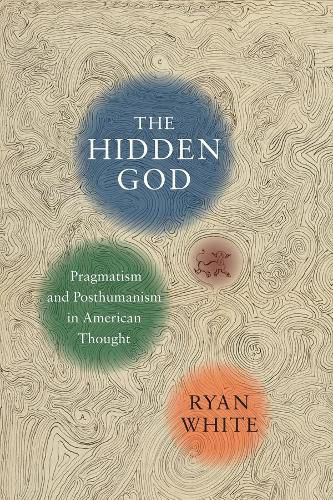Readings Newsletter
Become a Readings Member to make your shopping experience even easier.
Sign in or sign up for free!
You’re not far away from qualifying for FREE standard shipping within Australia
You’ve qualified for FREE standard shipping within Australia
The cart is loading…






The Hidden God revisits the origins of American pragmatism and finds a nascent posthumanist critique shaping early modern thought. By reaching as far back as the Calvinist arguments of the American Puritans and their struggle to know a hidden God, this book brings American pragmatism closer to contemporary critical theory.
Ryan White reads the writings of key American philosophers, including Jonathan Edwards, Ralph Waldo Emerson, William James, and Charles Sanders Peirce, against modern theoretical works by Niklas Luhmann, Richard Rorty, Jacques Derrida, Sharon Cameron, Cary Wolfe, and Gregory Bateson. This juxtaposition isolates the distinctly posthumanist form of pragmatism that began to arise in these early texts, challenging the accepted genealogy of pragmatic discourse and common definitions of posthumanist critique. Its rigorously theoretical perspective has wide implications for humanities research, enriching investigations into literature, history, politics, and art.
$9.00 standard shipping within Australia
FREE standard shipping within Australia for orders over $100.00
Express & International shipping calculated at checkout
The Hidden God revisits the origins of American pragmatism and finds a nascent posthumanist critique shaping early modern thought. By reaching as far back as the Calvinist arguments of the American Puritans and their struggle to know a hidden God, this book brings American pragmatism closer to contemporary critical theory.
Ryan White reads the writings of key American philosophers, including Jonathan Edwards, Ralph Waldo Emerson, William James, and Charles Sanders Peirce, against modern theoretical works by Niklas Luhmann, Richard Rorty, Jacques Derrida, Sharon Cameron, Cary Wolfe, and Gregory Bateson. This juxtaposition isolates the distinctly posthumanist form of pragmatism that began to arise in these early texts, challenging the accepted genealogy of pragmatic discourse and common definitions of posthumanist critique. Its rigorously theoretical perspective has wide implications for humanities research, enriching investigations into literature, history, politics, and art.